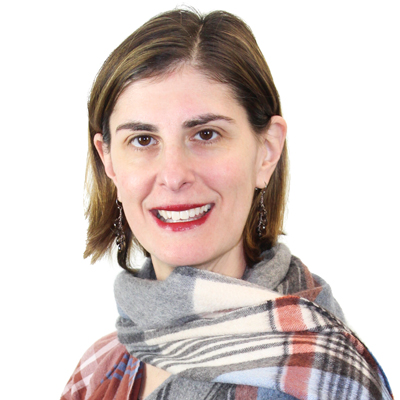
To better understand how the imminent COVID-19 vaccines will affect this sector, you merely need to talk to those in the field — people like Administrator Hayley Boutte, administrator of Maison Teche Nursing Center in Jeanerette, LA, and Assistant Administrator Sophia Brown of Mountain View Manor in Bryson City, NC.
These providers have had different experiences with COVID-19. And yet each has a similar outlook on a vaccine.
“There is a light at the end of the tunnel, as far as that [goes],” Boutte said.
“I’m so thankful there is one that is coming,” Brown agreed.
Separate struggles
Just like the virus inflicts a unique sort of harm on its host, both facilities have had their own struggles with the novel coronavirus.
Boutte remembers that Saturday in March when she came into work and learned that all visitation, activities and group dining were suspended.
“I had to sit in my car and cry,” she recalled. “How am I going to tell these people they can’t play bingo? It’s been very hard.”
The pandemic hit her facility, which is located about two hours west of New Orleans, in April. At that time, she said, so much less was known about the virus. She ended up isolating a woman for nearly two months because the guidance at the time called for two negative tests before lifting a quarantine. And no one was telling her to test asymptomatic residents. But when she tested roommates of residents with symptoms, they’d be positive. She thought, “Something’s wrong. There’s asymptomatic spread happening.”
One of the most challenging aspects of the virus is the conflicting information she has received between her state and the federal government.
“There’s not a cohesive plan, you could say,” she said.
Like a lot of administrators, she had to think creatively and act decisively. Because testing turnaround times took so long, she teamed up with an urgent care clinic in the area, SouthStar Urgent Care, that was doing rapid testing. One Saturday she tested all residents and built a COVID-19 unit based on those results.
“That’s how we stopped the spread,” she said. “We basically created our own POC [point-of-care] testing when there was none.”
The full impact of COVID-19 so far? A total of 56 residents and 35 staff members have tested positive. There have been 10 resident deaths.
Despite the challenges of the virus, the facility, which provides video, window and outdoor visits, does its best to provide love to residents. Recently, staff dressed a resident in a birthday sash, tied 88 balloons to the back of her wheelchair and gave her a crown.
“Her family couldn’t be here for her birthday so we were it,” Boutte said.
The virus has taken a toll on occupancy.
“We’re so swamped with COVID,” said Boutte, who is planning to build an outdoor patio space for visitation. “Our census has taken a huge hit. People don’t want to come into facilities because they can’t see their loved ones.”
Polar Express effect
Meanwhile, Mountain View Manor has fared by objective measures, excellently, with the virus — no positive cases among residents and just five among staff.
Brown, who will become administrator of the 120-bed skilled nursing facility later this month, credits the low case count, in large part, to a few factors. Among them are prayer, and diligently following the guidelines from the Centers for Medicare & Medicaid Services and the Centers for Disease Control and Prevention, as well as the Swain County health department.
She can’t say enough about the latter.
“Swain has provided education and fit testing for N95s,” she said. “They are always calling to see if we need something. They are like our little conductor.”
And still it has not been easy. Because of the recent rampant spread of COVID-19 in Bryson City, home of the Great Smoky Mountains Railroad, the positivity rate in the surrounding community is north of 12%, she said.
“Our town is covered in people in PJs riding the Polar Express,” Brown said.
Residents still can’t come out of their rooms, she noted. The only ones who do are going to therapy or a medical appointment. Anyone who goes to the emergency room is isolated for 14 days.
“We are doing everything we can to protect them,” she said.
The facility provides window visits and an outdoor space for visitation. To combat depression among residents from the isolation, the staff has stepped up in the activities area, offering “wingo,” or bingo on the hall; and other kinds of socially distanced entertainment. An ice cream truck came around recently with hot chocolate and Christmas cookies.
The staff is weary.
“Your eyes open in the morning and you put this heavy vest on,” she explained. “We just continue. Our staff are dedicated and I’m so grateful for them for being willing to come do what it takes. It’s not easy.”
Next chapter
In the case of Brown and Boutte, the vaccine represents a bright spot, a break from the endless vigilance, ceaseless work of containing the virus.
Brown, who said she plans to take the vaccine, noted that people are leery of getting the shot.
“I am hopeful this will help us turn a corner with this,” she said. “We can’t force anyone to take it, but we’ll provide education and hope for the best.”
Boutte, who at first was hesitant but now feels more confident about taking the vaccine herself, is praying that enough people will do the same.
“I think the vaccine is going to be a positive thing, especially for residents,” she said. “They are more inclined to take it, if [it means] they can see their loved ones again.”
Liza Berger is Senior Editor of McKnight’s Long-Term Care News. Follow her @lizaberger19.





